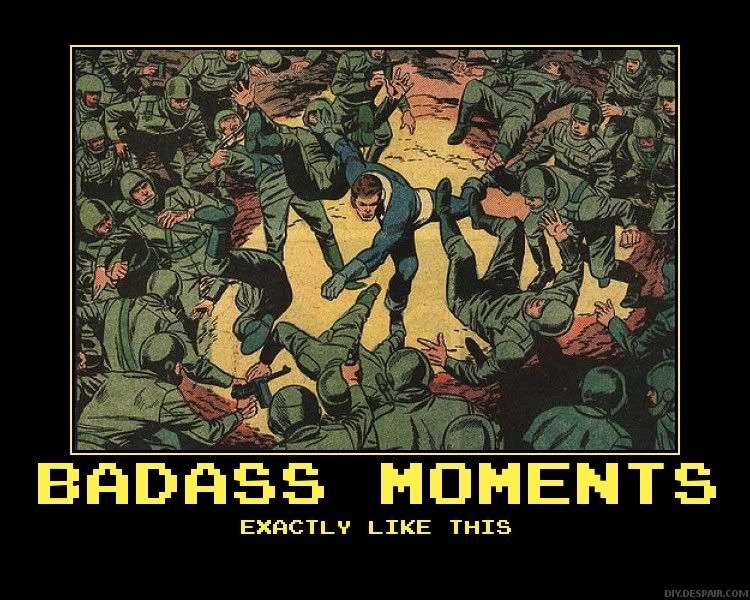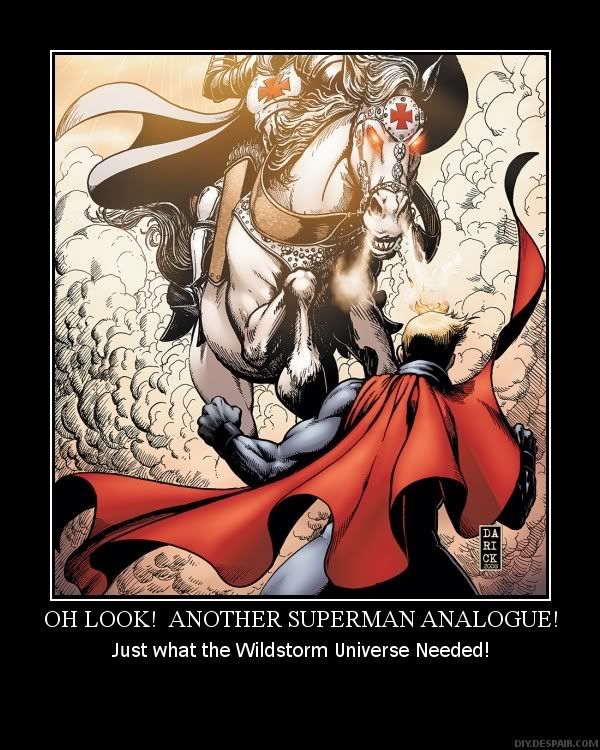 Tonight we'll look at Devil's Cape by Rob Rogers (whom has a very nice blog).
Tonight we'll look at Devil's Cape by Rob Rogers (whom has a very nice blog).Disclaimer: While I used to read a bit of superhero prose stuff in my teens (mostly the stuff Marvel was producing as it had better stories than the comics at the time), I've always found that the superhero genre is hard to convey without the colorful visuals of the comics and screen. I mean, in much the same way that live action TV and movies have to take liberties with superhero costumes that an actor can actually use, superhero stuff in prose has to make a lot of other concessions in order to focus on the storytelling.
Thankfully, Rogers understood this from the outset, and the result is surprising for a (new) author; while there are some heavy expository sections that make it a bit of a drain to read, the rest is highly entertaining. Rogers' strongest achievement is creating a setting that is reminescent of Gotham, New Orleans (a clear inspiration) and the Mos Eisley Spaceport from Star Wars, and has amplified the corruption and vice to their (super)natural extremes. Outside of James Robinson's Starman run, I've never seen this much use of the setting as a context for a superhero story. Rogers spends a lot of time getting you to know the city; you can feel the sweltering heat of the city and smell the garbage rotting in the streets as apathetic cops drive along, knowing they are bought and paid for by a dozen levels of greed and evil. Devil's Cape isn't a place I'd want to visit, except by reading about it.
Another excellent choice by Rogers: he eschews analogues, when it would be easy to do so. There are no dark detectives whom have trained mind and body to perfection, no superhuman alien demigods or prankster acrobats or psychotic clowns. His characters, their powers and origins manages to seem fresh and new, despite hewing very close to classic mythological heroic archtypes. That's an impressive feat that I wish more comic writers would follow.

Where Rogers shows weakness in his work is that you never get a clear sense of motivation from any of the protagonists as to why they are doing what they are doing (the sole exception being Doctor Camelot and her search for revenge). Part of this is due to the large cast he uses to paint the canvas of the setting, and part of it is likely because of the moral grey area inherent to the nature of the setting (I find it no surprise that the only character with a clear cut motivation is not a native of Devil's Cape). This, and some rather oppressive wording during the middle of the book (where Rogers moves from simple set up of the city to explaining the world it inhabits and the various superbeings) are fairly minor glitches in what is overall a very light and enjoyable read. Pick it up, give it a try, and hope that we get more from him soon.

No comments:
Post a Comment